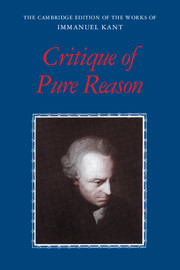Division two. Transcendental dialectic
Summary
Introduction I Transcendental illusion.
Above we have called dialectic in general a logic of illusion That does not mean that it is a doctrine of probability;' for that is truth, but cognized through insufficient grounds, so that the cognition of it is defective, but not therefore deceptive, and so it need not be separated from the analytical part of logic. Still less may we take appearance and illusion for one and the same. For truth and illusion are not in the object, insofar as it is intuited, but in the judgment about it insofar as it is thought. Thus it is correctly said that the senses do not err; yet not because they always judge correcdy, but because they do not judge at all. Hence truth, as much as error, and thus also illusion as leading to the latter, are to be found only in judgments, i.e., only in the relation of the object to our understanding. In a cognition that thoroughly agrees with the laws of the understanding there is also no error. In a representation of sense (because it contains no judgment at all) there is no error. No force of nature can of itself depart from its own laws. Hence neither the understanding by itself (without the influence of another cause), nor the senses by themselves, can err; the first cannot, because while it acts merely according to its own laws, its effect (the judgment) must necessarily agree with these laws.
- Type
- Chapter
- Information
- Critique of Pure Reason , pp. 384 - 393Publisher: Cambridge University PressPrint publication year: 1998

